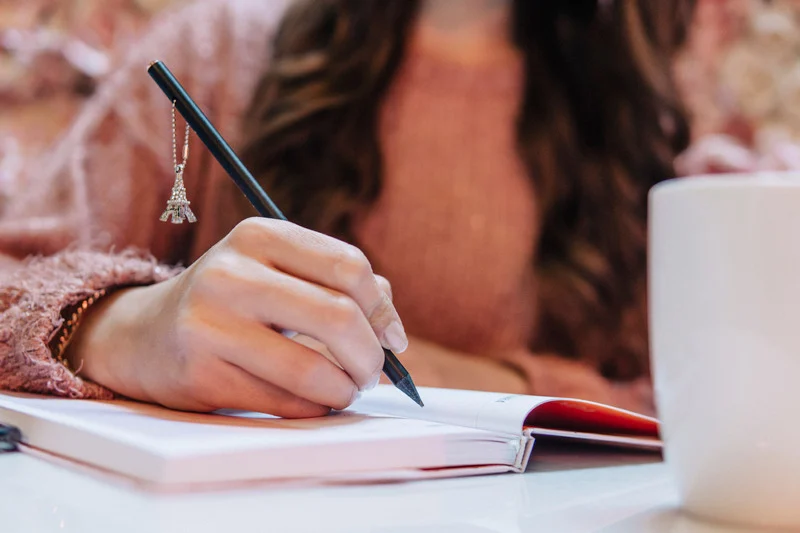Writing a Letter to Your Younger Self: A Journey of Healing and Connection.
As psychotherapist who blends both therapeutic and coaching approaches, I enjoy sharing reflective exercises with my clients. One of my favorites, and I think one of the most powerful, is writing a letter to your younger self. It’s amazing how this simple practice can bring about such deep insights, foster healing, and help you connect with different parts of yourself. It’s like having a heartfelt conversation with your past self, offering wisdom and compassion that you might not have had back then.
Step 1: Pick an Age That First Comes to Your Mind
Start by thinking of an age that really stands out to you. Maybe it was a time of big changes, a tough period, or a very happy moment in your life. If you’re not sure which age to choose, try looking through some old photos. Sometimes, seeing those pictures can bring back memories and feelings that point you to the version of yourself who needs to hear from you the most.
Step 2: Find a Peaceful Place to Write
Pick a serene and comfortable spot where you can write without any interruptions. Maybe it’s a quiet corner of your home, a favorite spot in nature, or a cozy café. The important thing is to find a place that helps you relax and dive deep into your thoughts. Take your time with this process; there’s no need to rush.
Step 3: Address Your Younger Self
Begin by warmly addressing your younger self. Use a tone of compassion and kindness. Imagine you are speaking to a dear friend or a beloved family member.
“Dear Patty,
I’m writing to you with my heart filled with love, deep compassion, and understanding. I see you clearly in my mind’s eye. You are so precious and incredibly special to your family and friends. I know you’re shy and only open up when you feel truly safe. Please join me as I share some special thoughts with you.”
Imagining Your Younger Self
“I see you playing in the backyard with your braided ponytail and rubber boots, your eyes lighting up with excitement as you explore the woods around you. You love to collect flowers, rocks, sticks, and dirt in your bucket and create amazing things with them. This is the beginning of your creative side that will continually soothe you and give you confidence in your uniqueness. Your curiosity knows no bounds.”
Acknowledge Emotions
“I know that sometimes you feel sad when you are alone and wonder where everyone in your family is and why you are alone. You worry about not being enough and fear being left behind. It’s not your fault that you are alone; the adults in your life were supposed to be more attentive to you. You will eventually enjoy being alone, and you will also connect with others in a deep and fulfilling way.”
Recognizing Their Special Gifts
“You have such a compassionate heart and a vivid imagination. Your ability to see the world in a unique way is a special gift. You care deeply about others, and your empathy will be one of your greatest strengths, helping many people heal and transform their lives.”
Acknowledging the Hard Times
“Life isn’t always easy, and there will be tough times ahead. There will be moments when you feel overwhelmed with unpleasant emotions. It’s important to remember that these challenges will always pass, and each difficult season will give birth to a more compassionate, kinder, stronger, and more confident you.”
Celebrating the Joyful Times
“There will also be many joyful times, moments of laughter, love, and triumph. Cherish the summers at the lake, the sleepovers with Krissy, and making cookies with Mom. These moments will fill your heart with happiness and remind you that life is a gift.”
Provide Encouragement and Motivation
“You can achieve so much. Believe in yourself, and don’t believe the lies that insecurity tries to tell you. You have the strength and ability to bounce back from any obstacle. You will need to learn to lean on those who care about you instead of trying to do everything on your own. You will have deep and loving friendships.”
Giving Gentle, Loving Advice
“You are precious and loved. Your life is not perfect, and you are enough just as you are. You are smart and will solve many problems for yourself and others. Don’t sweat the small stuff. As you mature, you will realize that what is most important is your relationship with God and with others in your life. Remember, you can do hard things, and you will have seasons of joy that will fill your heart with peace.”
Conclusion
“I love you and I am so proud of you”
Step 4: Reflect and Embrace the Journal
Once you’ve finished writing your letter, take a moment to sit with what you’ve expressed. This process is about forging a deeper connection with yourself. Allow any emotions that come up to be felt and let insights flow from a place of love and non-judgment.
Writing to your younger self is a powerful journey of self-discovery and personal growth. It gives you the chance to extend compassion to your past self and gain a richer understanding of who you are today. I encourage you to embrace this process and see the insightful and nurturing potential that it holds.
If you’re looking to dive even deeper into your connection with yourself, I’d be honored to guide you through a deeper connection to yourself. It’s a journey you won’t regret!
With gratitude,






